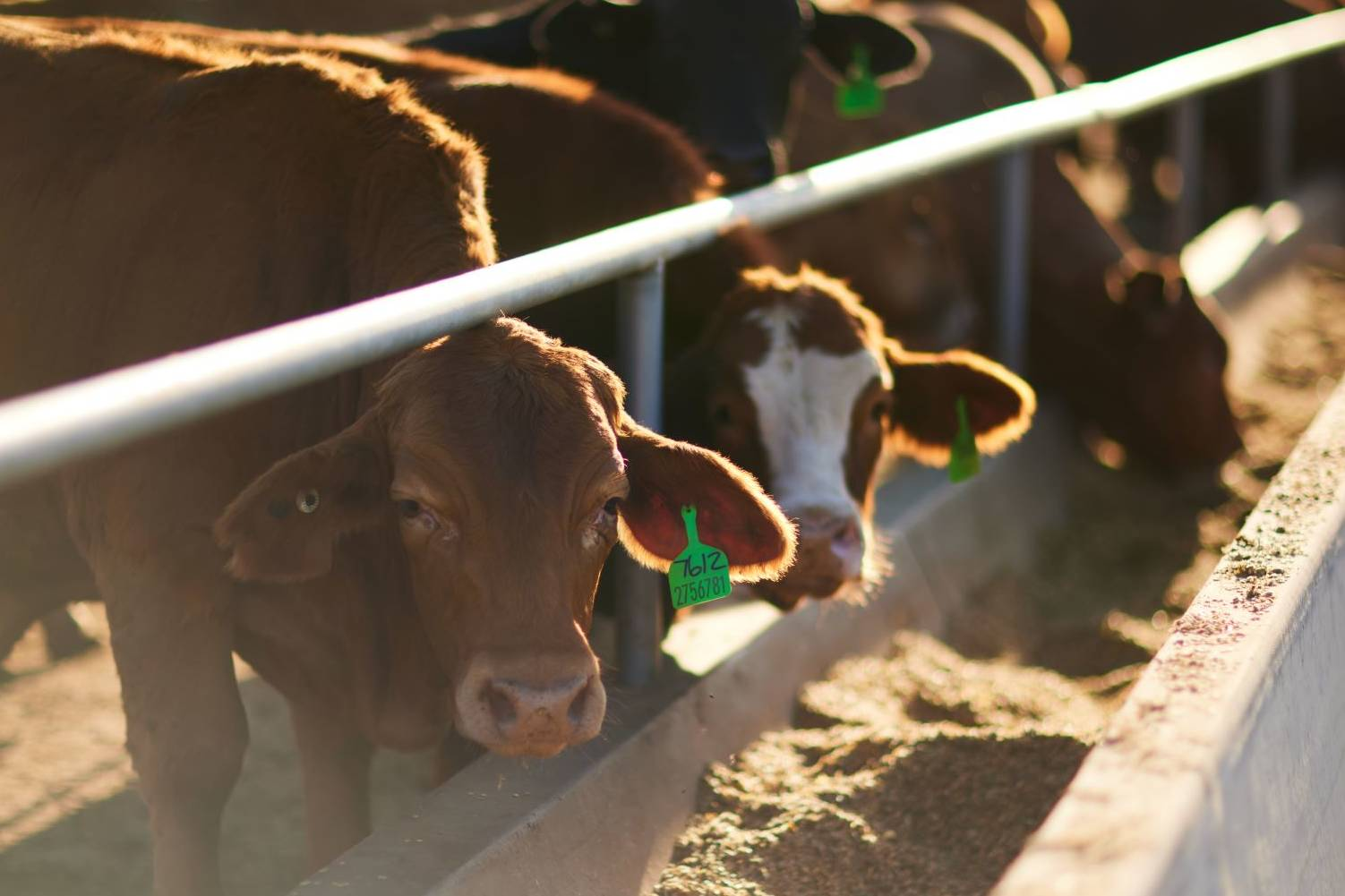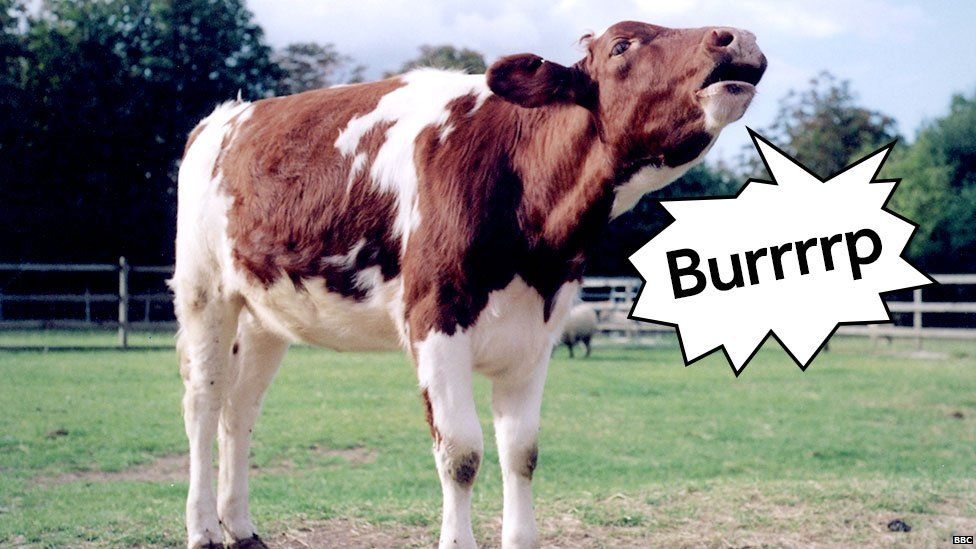Coles is fighting climate change one cattle burp (and er… emanations from the other end) at a time
- Replies 7
More and more measures are being taken by Australia's largest grocery chains to make their operations greener and more sustainable.
Just last month, Coles made the announcement that single-use plastic bags would progressively be phased out in all of their stores, notably in the fresh produce and deli departments. Customers are also encouraged to bring their own containers when purchasing deli goods in an effort to reduce wasteful packaging.
Now, Coles is working with the beef industry to test a new feed supplement that cuts methane emissions from cattle by a lot – what this could mean is a considerably greener future for Australia's beef farming.

Coles is taking a major step in reducing cattle farming methane emissions. Credit: Queensland Country Life.
The majority of greenhouse gas emissions that result from animal production (14.5 per cent of the total) are related to the cattle farming industry. Cows give off a lot of methane, which is an odourless glasshouse gas that traps heat in the atmosphere more than 25 times as well as carbon dioxide.
About 95 per cent of a cow's daily methane emissions come from its burps, and a single dairy cow can emit as much as 492 litres of methane daily. Around the world, there are more than a billion cattle, so you can only imagine the enormous amounts of methane released every single day.
That's why Australian supermarket chain Coles is working with Queensland's largest commercial feedlot, Mort & Co. Grassdale Feedlot, to cut methane emissions from beef cattle.
While others have proposed using masks to reduce the digestive emissions of cows, Coles has developed a much more humane solution: a nutritional supplement called Bovaer.
Bovaer suppresses the enzyme that initiates methane production in an animal's stomach, which is why scientists thought it could be used as a methane inhibitor. In the trial, the feed supplement will be given to about 9,800 feedlot cattle to see how well it reduces methane emissions.

Cow burps are releasing a lot of methane into the atmosphere. Credit: BBC.
According to Leah Weckert, CEO of Coles' Commercial and Express department, the trial is just one example of the company's efforts to collaborate with its suppliers to test new approaches to improving sustainability.
'When we set out our Together to Zero emissions ambition in our Sustainability Strategy, we knew that working with our supplier partners and stakeholders would be key to achieving this,' Weckert said.
'We hope the Bovaer feed supplement trial will open up a new opportunity for emissions reduction, and that it will provide an affordable, commercially viable option to one day be rolled out at scale around the country.'
Stephen O'Brien, CEO of Mort & Co, said, 'We approached Coles to partner with us in this trial because we believe Bovaer had significant research and science behind it to make it worthy of a trial of this size.'
'We're confident that the final outcome will be a game changer for our industry, providing us with scientifically proven results that will hopefully allow us to roll this out across a larger cohort of cattle and certainly change our environmental footprint,' he said.
'The Australian red meat and livestock industry goal is to be carbon neutral by 2030, and we look forward to working with Coles to lead the way.'
Bovaer, which the animal naturally breaks down as part of the digestive process, has previously been proven to be effective in lowering methane emissions in trials conducted abroad. This study conducted by Coles and partner companies will be the first of its kind in Australia.
So what do you think of this move from Coles, folks? We don't currently know if the supplement makes a big difference in the quality of beef from the cattle, but if it's completely safe, it can't hurt to try if it saves the environment, right?
Just last month, Coles made the announcement that single-use plastic bags would progressively be phased out in all of their stores, notably in the fresh produce and deli departments. Customers are also encouraged to bring their own containers when purchasing deli goods in an effort to reduce wasteful packaging.
Now, Coles is working with the beef industry to test a new feed supplement that cuts methane emissions from cattle by a lot – what this could mean is a considerably greener future for Australia's beef farming.
Coles is taking a major step in reducing cattle farming methane emissions. Credit: Queensland Country Life.
The majority of greenhouse gas emissions that result from animal production (14.5 per cent of the total) are related to the cattle farming industry. Cows give off a lot of methane, which is an odourless glasshouse gas that traps heat in the atmosphere more than 25 times as well as carbon dioxide.
About 95 per cent of a cow's daily methane emissions come from its burps, and a single dairy cow can emit as much as 492 litres of methane daily. Around the world, there are more than a billion cattle, so you can only imagine the enormous amounts of methane released every single day.
That's why Australian supermarket chain Coles is working with Queensland's largest commercial feedlot, Mort & Co. Grassdale Feedlot, to cut methane emissions from beef cattle.
While others have proposed using masks to reduce the digestive emissions of cows, Coles has developed a much more humane solution: a nutritional supplement called Bovaer.
Bovaer suppresses the enzyme that initiates methane production in an animal's stomach, which is why scientists thought it could be used as a methane inhibitor. In the trial, the feed supplement will be given to about 9,800 feedlot cattle to see how well it reduces methane emissions.
Cow burps are releasing a lot of methane into the atmosphere. Credit: BBC.
According to Leah Weckert, CEO of Coles' Commercial and Express department, the trial is just one example of the company's efforts to collaborate with its suppliers to test new approaches to improving sustainability.
'When we set out our Together to Zero emissions ambition in our Sustainability Strategy, we knew that working with our supplier partners and stakeholders would be key to achieving this,' Weckert said.
'We hope the Bovaer feed supplement trial will open up a new opportunity for emissions reduction, and that it will provide an affordable, commercially viable option to one day be rolled out at scale around the country.'
Stephen O'Brien, CEO of Mort & Co, said, 'We approached Coles to partner with us in this trial because we believe Bovaer had significant research and science behind it to make it worthy of a trial of this size.'
'We're confident that the final outcome will be a game changer for our industry, providing us with scientifically proven results that will hopefully allow us to roll this out across a larger cohort of cattle and certainly change our environmental footprint,' he said.
'The Australian red meat and livestock industry goal is to be carbon neutral by 2030, and we look forward to working with Coles to lead the way.'
Bovaer, which the animal naturally breaks down as part of the digestive process, has previously been proven to be effective in lowering methane emissions in trials conducted abroad. This study conducted by Coles and partner companies will be the first of its kind in Australia.
So what do you think of this move from Coles, folks? We don't currently know if the supplement makes a big difference in the quality of beef from the cattle, but if it's completely safe, it can't hurt to try if it saves the environment, right?







